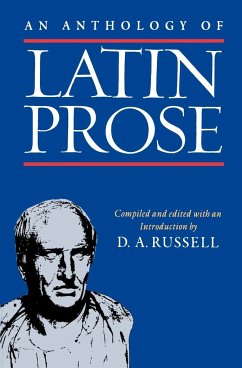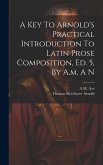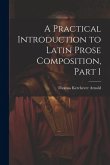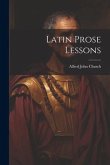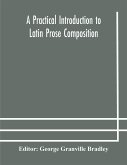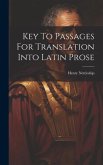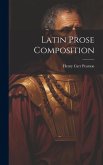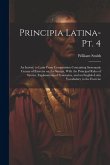This anthology fills a gap which has been widely felt. It gives students - at sixth-form, undergraduate or junior graduate level - the opportunity of sampling a very wide variety of Latin prose texts, chosen to illustrate both development and generic differences. Each of the 96 passages is accompanied by a short introduction, and there are brief notes explaining difficult words and drawing attention to linguistic and stylistic points occurring in the extracts. The extracts range from the second century BC to the fifth century AD: Cato the Censor, C. Gracchus, and the annalists; Cicero (oratory, letters, philosophical treatises); the historians (Sallust, Livy, and Tacitus); non-historical prose (Seneca, Vitruvius, Pliny, Apuleius, Tertullian); and finally some early Patristic texts and extracts from the Vulgate.
Filling a major gap in the literature, this useful collection of Latin prose offers ninety-six short passages ranging from the second century B.C. to the sixth century A.D. The book allows students to sample a wide variety of Latin prose texts and illustrates both development and generic differences. Each text is accompanied by a short introduction and brief notes that explain difficult words and draw attention to linguistic and stylistic points. The selections include works by Cato the Censor, C. Gracchus, the annalists, Cicero, Sallust, Livy, Tacitus, Seneca, Vitruvius, and Pliny; some early Patristic texts; and extracts from the Vulgate. Chosen for their diversity and interesting content, the passages are completely accessible to both teachers and students of Latin language and literature, making this anthology invaluable in the teaching and study of Latin prose composition.
Hinweis: Dieser Artikel kann nur an eine deutsche Lieferadresse ausgeliefert werden.
Filling a major gap in the literature, this useful collection of Latin prose offers ninety-six short passages ranging from the second century B.C. to the sixth century A.D. The book allows students to sample a wide variety of Latin prose texts and illustrates both development and generic differences. Each text is accompanied by a short introduction and brief notes that explain difficult words and draw attention to linguistic and stylistic points. The selections include works by Cato the Censor, C. Gracchus, the annalists, Cicero, Sallust, Livy, Tacitus, Seneca, Vitruvius, and Pliny; some early Patristic texts; and extracts from the Vulgate. Chosen for their diversity and interesting content, the passages are completely accessible to both teachers and students of Latin language and literature, making this anthology invaluable in the teaching and study of Latin prose composition.
Hinweis: Dieser Artikel kann nur an eine deutsche Lieferadresse ausgeliefert werden.
